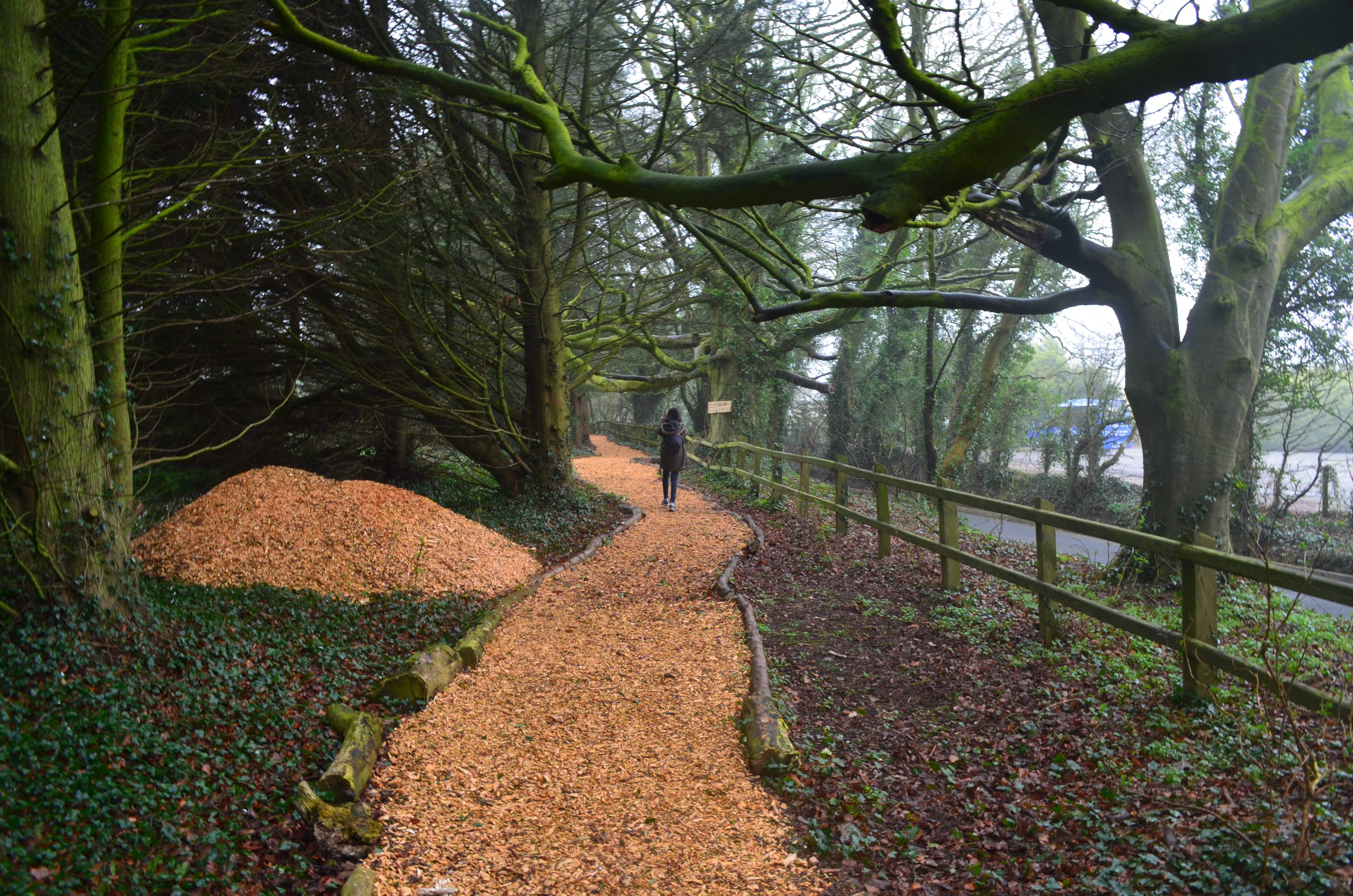This article was written by Lakshmi T. Nambiar (Batch of 2023).
As a self-proclaimed Strong Independent WomanTM and certified Wanderluster (I have fifteen mainstream travel Pinterest Boards) the natural conclusion was, of course, that I would be an LFT (‘Lone Female Traveller’, uninitiated please refer to Megha Mehta’s article) and at some point, in the future, backpack to waterfalls in Barcelona, or as fate were to have it, dirty rivers in Dublin and London.
So, as I found myself filled with fear, clutching my passport for dear life as I tried to fall asleep in a room with two strange men, I couldn’t help but mope about the fact that I was moping. Here I was, practically alone in a foreign city (a part of my checklist of LFT fulfilment) and yet here I was anxious about every little thing – losing my passport or getting mugged or someone whisking my phone away while I was sleeping or someone walking away with my locker box. Admittedly, these were irrational fears – my passport was under three layers of clothing and I checked for it every five steps out of sheer paranoia, Dublin and London are safer cities than most Indian ones, my phone was tucked beneath my pillow and I clutched it tightly in my hand, and my locker box is heavier than I am (this of course made me worry about them carrying me away).
But, if there is one thing that I have learnt from LFTing, it is the value of safe spaces – something which I had at no point for those seven days of my travel. I mean, solo travelling is great and all – but have you ever felt completely secure and comfortable in a Fort-Knox-security-level safe space?
The thing about living in a hostel is that at no point was I ever completely alone and free of worry. In my room I would share it with three other strangers. In a shower stall I was alone, but all my stuff was back in the room. This means I was constantly worrying about first, whether someone was sneaking my 15kg locker out, or second, whether I even locked my locker, and third, if I did, where the key was – must be in my toiletries bag – and now there’s shampoo in my eye.
It wasn’t up till this point that I truly understood the absolute essentiality of a safe space – and what the term really meant. There is something absolutely paralysing about the admittedly irrational but all-encompassing fear that something will happen. And a safe space is simply somewhere where that fear is forgotten – even though the threat and the danger behind it may still be very very real. There is nothing to say that my room in Yamuna is safer than Generator Hostel, London. In fact, Generator Hostel, London requires you to have a key card in order to enter the living spaces – Yamuna Hostel, NLSIU doesn’t (it doesn’t even require a hand to pull the lock – a dog could do it – Dan has).
To be kind of honest – I’m not sure how exactly I got over the paralysis. To be even more honest – I most probably didn’t get over the fear entirely, maybe not at all. If you happened to follow me around in London, you’d see me stop literally every five steps and pat myself down like a crazy person. Maybe that’s why no one mugged me – crazy people probably aren’t trusted with a lot of money, or even a passport.
But here’s the thing – if you’d followed me around London you would probably also see that despite the fact that you have no connectivity in the Tube, I found it wildly fascinating to be a part of this sprawling city’s arteries. You’d find that even though I didn’t want to travel once it got dark, I decided that maybe spending the three extra hours staring at the Lobster Telephone or the feminist artwork was worth it at Tate. You’d see that I decided to go to a bar and have fish and chips and watch a football match because it just felt like it had a nice vibe. You’d see that I went to Hyde Park on an absolute whim even though my itinerary said otherwise. And when there I followed a canopied, sunlight-filtering path through the deserted woods and happened upon a clearing where a lone stranger was feeding the (surprisingly huge) squirrels. And then, when she offered me the bag of peanuts to feed the squirrels, despite the “what if I lose my phone paranoia”, I happily, voluntarily, gave her my phone to take a video of me while I fed them.
I didn’t ever completely get over the paranoia – in fact, I still find myself having confused moments wondering if I have my passport on me even though I’m back here. I’d have loved to have been accompanied by a friend – the safety of companionship allows you a freedom that can only be got with security. Nevertheless, the freedom of solitude was something I did not know I craved. To be able to split-second choose where I wish to go and how long I wish to stay – there’s nothing quite like it. I could sit for hours at King’s Cross just to feel the hot air that accompanied a train, and hear it shudder down and no one would say a thing.
In a way, I learnt to embrace the streets enough to find moments of safety where the experience transcended my paranoia. I found myself aimlessly wandering the posh neighbourhoods with their big parks, and the little parks within these big parks. I found myself loving the lit streets in the rain when I would escape into the clean-tiled Tube with its weird steep escalators. I found myself forgetting the paranoia in whims of excitement at the idea of just going somewhere, anywhere, because it looked like a pretty street or sounded like a nice Tube station, and stumbling upon a canal with houseboats or a red Telephone Box or just another magnolia tree. I found myself accepting the fear and the routine “did I lose something” check if it meant that I could just spend a moment or two longer admiring the graffiti on a slightly shady street. And I found myself leaving with a smile on my face, checking my pockets for passport, wallet, Oyster card and phone.
So, no, the paranoia never went away. But maybe it didn’t need to, as long as it went along with the LFT experience – as long as I could find pockets of happiness that made me forget everything else for even a minute.


Comments